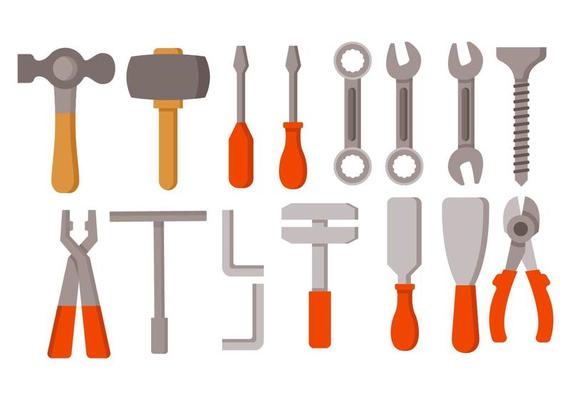The music industry has undergone an incredible transformation over the past two decades. From CDs to MP3s and now streaming services, how we consume music keeps changing. But despite the convenience of platforms like Spotify and Apple Music, many artists struggle to earn a fair income. Fans, too, often feel disconnected from the creators they support. Enter blockchain technology and cryptocurrency. The rise of decentralized platforms now offers a revolutionary twist: artists and fans can earn crypto through music streaming. This isn’t just a trend—it’s a shift in how value is exchanged in the digital music world. Artists get paid more transparently, and fans can be rewarded for their engagement. The evolution isn’t just about listening anymore it’s about participation, ownership, and empowerment.
💰 How Crypto-Powered Music Platforms Work
Crypto music platforms run on blockchain, a decentralized digital ledger that securely records transactions. When artists upload their music to blockchain-based streaming services like Audius, Emanate, or Opus, the songs are distributed across a peer-to-peer network. Every time a song is streamed, smart contracts—automated code on the blockchain—trigger instant, transparent payments to the artist in cryptocurrency. These platforms often use their own native tokens (like $AUDIO on Audius) that can be traded, staked, or converted into other cryptocurrencies or fiat. The innovation lies in removing middlemen, which allows creators to keep a larger share of their earnings. Some platforms even give a portion of the revenue to fans who promote or curate content, creating a win-win ecosystem. It’s a technical solution, but it’s built with everyday users in mind.
🎤 Benefits for Independent Artists
For independent artists, crypto streaming platforms are game-changers. Traditional platforms often pay artists a tiny fraction of a cent per stream, and it can take months to receive royalties. In contrast, blockchain-based services offer instant payments, higher earning potential, and full transparency. Artists also retain complete control over their music, data, and fan engagement. They can even tokenize their music or albums, turning them into NFTs (non-fungible tokens) that fans can buy, trade, or hold as collectibles. This opens up new revenue streams and deepens fan connections. Moreover, artists can launch fan clubs or exclusive access passes via smart contracts—offering VIP experiences, unreleased tracks, or merchandise discounts. It’s not just about revenue anymore; it’s about freedom, creativity, and owning your career on your terms.
🙌 Opportunities for Fans to Earn
Fans are no longer passive listeners—they’re now stakeholders. Crypto music platforms reward fans for their loyalty, curation, and promotion. Imagine earning crypto for simply sharing a playlist or commenting on new tracks. Some platforms allow users to stake tokens, which support the network and generate returns. Others offer tokens for discovering trending songs early or engaging in community activities. Fans can even invest in their favorite artists, buying into their tokenized projects and sharing in their success. This fan-to-artist relationship creates stronger bonds and builds real digital communities. Fans also gain early access to limited-edition music, exclusive NFTs, or concert experiences—just for being active participants. It’s a new era where fans don’t just support artists emotionally; they support them financially—and benefit too.
🌐 Real-World Examples: Audius, Emanate & More
Several platforms are already reshaping the industry. Audius is one of the leading names, with over 7 million monthly users and artists like Deadmau5 and Skrillex on board. Audius uses its native $AUDIO token to reward artists and fans alike. Then there’s Emanate, which focuses on real-time audio streaming and immediate payment distribution. Opus and Choon are also noteworthy for offering decentralized streaming experiences without intermediaries. These platforms differ in their tokenomics and approach, but they all share the same mission: to empower music creators and listeners. Their growing adoption shows that crypto-powered music streaming isn’t just niche—it’s gaining traction. Many of these services are also open-source, community-governed, and globally accessible, which means they have the potential to outscale traditional players over time.
🛠️ The Role of NFTs in Music Streaming
NFTs have added a new layer to how music is shared and monetized. Artists can mint exclusive tracks, albums, or experiences as NFTs, giving fans verifiable ownership and access. This isn’t about hype—it’s about utility. Owning a music NFT can unlock backstage content, lifetime concert passes, or personalized messages from the artist. It creates scarcity and value in a digital world where everything is easily duplicated. Moreover, artists can program royalties into their NFTs, so they earn every time the NFT is resold on marketplaces like OpenSea or Rarible. Fans benefit by owning a tradable asset that might increase in value. This dynamic is changing how music is collected, sold, and shared. It’s not just about streaming anymore—it’s about experiencing and owning music in a new way.
📊 Transparency and Fair Payments
One of the biggest pain points in the music industry is the lack of transparency. Artists often don’t know where their money is coming from or how it’s calculated. Blockchain fixes this. Every transaction is recorded on a public ledger, visible to all parties involved. This trustless system means no shady accounting, no delayed payments, and no hidden fees. Smart contracts automate revenue splits, ensuring that collaborators, producers, and writers get their fair share instantly. This shift is especially empowering for indie artists who don’t have legal teams to chase royalties. For fans, it builds trust in the platform, knowing that their support truly reaches the creator. Transparency isn’t just a buzzword here—it’s the foundation of a more ethical and honest music economy.
🧠 Building Trust with Web3 Principles
Web3—the decentralized internet—is all about ownership, community, and transparency. Music streaming powered by Web3 isn’t just about crypto—it’s about changing the rules of engagement. Artists own their content. Fans own their support. Platforms don’t control everything. Trust is built into the design. Unlike traditional platforms driven by opaque algorithms, Web3 puts the community first. This leads to more authentic engagement, genuine discovery, and meaningful monetization. It’s not just a technical upgrade—it’s a cultural and philosophical one. One where everyone in the ecosystem is respected and rewarded.
⚠️ Challenges and Things to Consider
While crypto music streaming has huge potential, it’s not without challenges. Blockchain platforms can be harder to use for non-tech-savvy users. Volatility in crypto prices may affect income predictability. Also, mainstream adoption is still growing, and some platforms lack the polish and user base of giants like Spotify. There are also concerns around energy usage for certain blockchains, although newer technologies are addressing this. Regulatory frameworks are evolving too, meaning legal clarity is still a work in progress in many countries. Still, these hurdles are common in any emerging industry. What matters is that the direction is clear: more control, more fairness, and more opportunity for artists and fans. The future may not be without bumps, but it’s worth the ride.
🚀 The Future of Music and Crypto
The fusion of music and crypto is only getting started. As blockchain technology becomes more mainstream, we can expect better interfaces, stronger communities, and increased earnings for creators and fans. More artists will tokenize their work, more fans will invest in the musicians they love, and more platforms will emerge with innovative models. The traditional industry may resist, but decentralization is becoming a cultural movement, not just a technical trend. Artists are no longer waiting for labels or executives to validate them—they’re taking control. And fans? They’re being rewarded for doing what they already love: listening, sharing, and supporting. The future of music isn’t in the hands of a few gatekeepers anymore. It’s in the hands of everyone who believes music should be fair, open, and rewarding for all.








